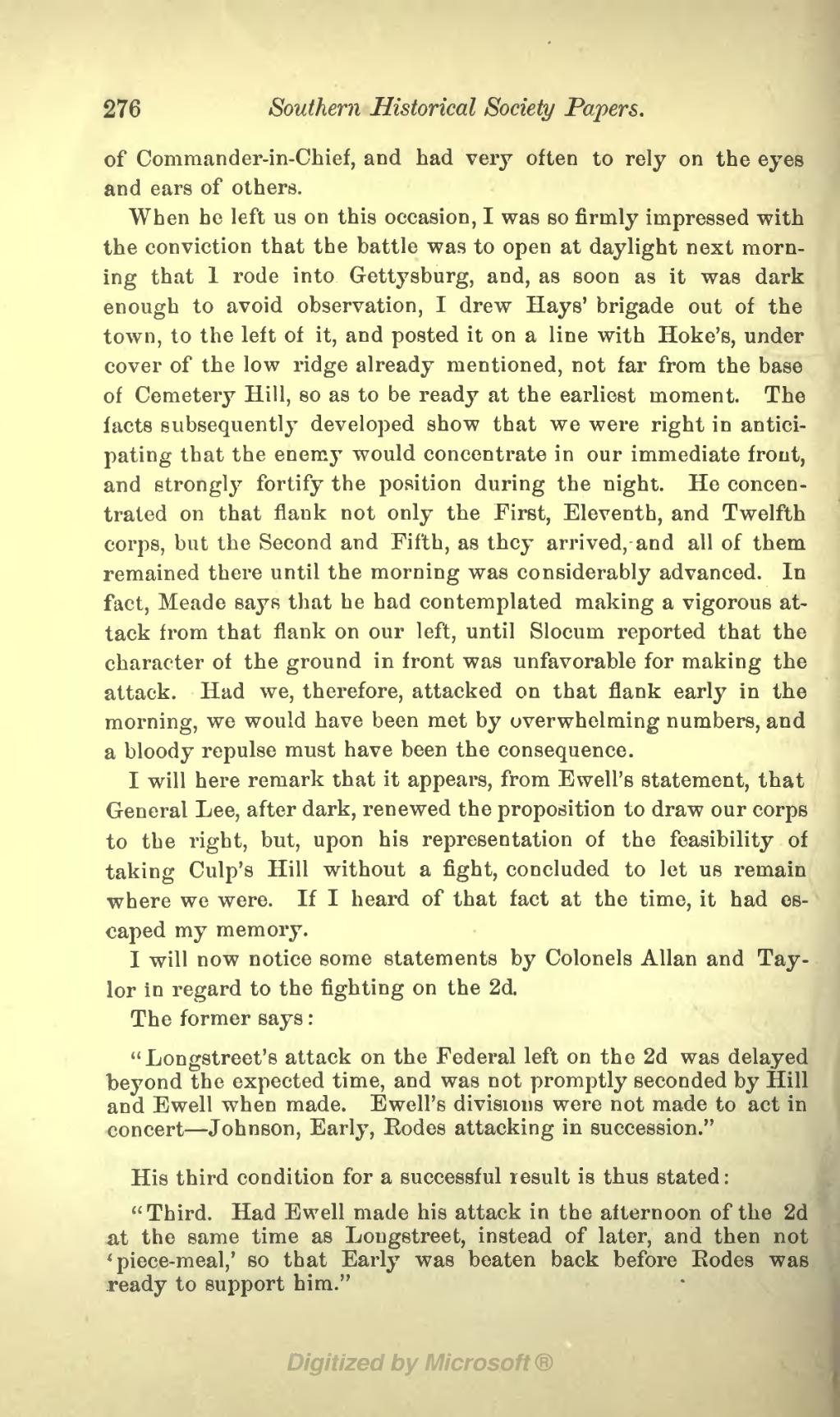of Commander-in-Chief, and had very often to rely on the eyes and ears of others.
When he left us on this occasion, I was so firmly impressed with the conviction that the battle was to open at daylight next morning that I rode into Gettysburg, and, as soon as it was dark enough to avoid observation, I drew Hays' brigade out of the town, to the left of it, and posted it on a line with Hoke's, under cover of the low ridge already mentioned, not far from the base of Cemetery Hill, so as to be ready at the earliest moment. The facts subsequently developed show that we were right in anticipating that the enemy would concentrate in our immediate front, and strongly fortify the position during the night. He concentrated on that flank not only the First, Eleventh, and Twelfth corps, but the Second and Fifth, as they arrived, and all of them remained there until the morning was considerably advanced. In fact, Meade says that he had contemplated making a vigorous attack from that flank on our left, until Slocum reported that the character of the ground in front was unfavorable for making the attack. Had we, therefore, attacked on that flank early in the morning, we would have been met by overwhelming numbers, and a bloody repulse must have been the consequence.
I will here remark that it appears, from Ewell's statement, that General Lee, after dark, renewed the proposition to draw our corps to the right, but, upon his representation of the feasibility of taking Culp's Hill without a fight, concluded to let us remain where we were. If I heard of that fact at the time, it had escaped my memory.
I will now notice some statements by Colonels Allan and Taylor in regard to the fighting on the 2d.
The former says:
"Longstreet's attack on the Federal left on the 2d was delayed beyond the expected time, and was not promptly seconded by Hill and Ewell when made. Ewell's divisions were not made to act in concert—Johnson, Early, Rodes attacking in succession."
His third condition for a successful result is thus stated:
"Third. Had Ewell made his attack in the afternoon of the 2d at the same time as Longstreet, instead of later, and then not 'piece-meal,' so that Early was beaten back before Rodes was ready to support him."
